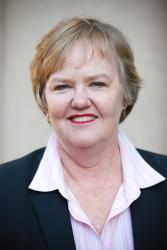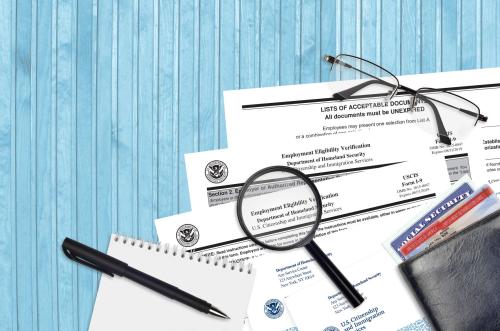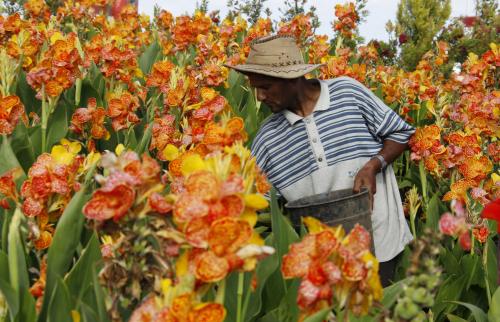

6:00 pm EST - 8:00 pm EST
Past Event
Content from the Brookings Doha Center is now archived. In September 2021, after 14 years of impactful partnership, Brookings and the Brookings Doha Center announced that they were ending their affiliation. The Brookings Doha Center is now the Middle East Council on Global Affairs, a separate public policy institution based in Qatar.
On November 18, the Brookings Doha Center hosted a policy discussion with Elizabeth Ferris, senior fellow and co-director of the Brookings-Bern Project on Internal Displacement; Samantha Power, special assistant to the president of the United States and senior director for multilateral affairs and human rights at the National Security Council and White House coordinator for Iraqi refugees and displaced persons; and Abdel Khaliq Mohammad Rasheed Zangana, chairman of the Committee for Relocated, Displaced and Migrants at the Council of Representatives of Iraq. The discussion focused on the current situation of Iraqi refugees and displaced persons, the challenges of displacement, signs of progress, and recommendations for the future. The event, which was followed by a question and answer session, was moderated by Hady Amr, director of the Brookings Doha Center, and was attended by members of Qatar’s diplomatic, academic and media communities, including Iraqi civil society members and refugees.
Ferris explained that while Iraqi displacement has a long history that dates back to the fourteenth century, Iraq has seen several waves of displacement in the last ten years alone – during Saddam Hussein’s rule, post Saddam Hussein in 2003, and post 2006 following the bombing of the Al Askari mosque in Samarra. Ferris emphasized that while current estimates show that there are between four to five million Iraqi refugees and displaced persons, the numbers themselves are political, as they are in every refugee situation. Given the political consequences of higher or lower figures, though, this is a particularly sensitive issue in Iraq.
Ferris stressed that resolving the issue of displacement is important for Iraq’s future for three main reasons. First, displacement is a humanitarian issue requiring a humanitarian response. Second, displacement is a development issue whereby access to social services and security are a determining factor for individual decisions on whether and where to move. Over decades, Iraq has suffered from the emigration of large numbers of its professionals, such as doctors and academics. Their return can contribute to Iraq’s development and improve, for instance, access to health services. But, as Ferris noted, these professionals are faced with a “chicken and egg” situation – they are reluctant to go back for fear of having insufficient access to services, while the return of those same Iraqis and their skills could help contribute to the restoration of these services. Third, displacement is a security issue, particularly in Iraq where it has been a result of sectarian violence in recent years. Security, as Ferris pointed out, is rarely uniform. While national statistics show an improvement, refugees and displaced persons are more interested in knowing how secure their own community is rather than the more general information on levels of security in the country. Ferris underscored the importance of resolving the problem of displacement sooner rather than later, as it becomes increasingly complicated and difficult the longer it persists. She concluded by highlighting the excellent job that the international community has done in providing relief and humanitarian assistance and suggested that more thought should be put into the monitoring mechanisms in place in Iraq. International monitoring has, in many situations of return, played a key role in making people feel safer, especially where a human rights organization has been monitoring the security situation closely.
Zangana, himself a former refugee, went into a deeper discussion on the history of displacement in Iraq, since the transition from monarchical to republican rule in the 1950’s through today. He demonstrated the recurring and varied incidence of internal and external displacement following certain key events, such as the bloody 1963 coup d’état, Iraq’s persecution of the Kurds, and the 1979 Iranian revolution and the Iran-Iraq war, which resulted in hundreds of thousands of refugees. Zangana brought to attention the fate of more than two million displaced Iraqis following the fall of Saddam Hussein in 2003, many of whom were among the most skilled doctors, engineers, scientists, and academics. While a number of the displaced returned to Iraq later that year from neighboring countries such as Egypt, Iran, Jordan, Syria and Turkey, there was a simultaneous exodus of those loyal to the Ba’ath party who feared for their lives and consequently decided to flee Iraq. Zangana noted that the sectarian violence that ensued inside Iraq, along with the terrorist attacks committed by Al Qaeda members, worsened the situation further.
Despite this grim picture, however, Zangana pointed to the improvement of the security situation in Iraq, which has resulted in the return of a small, but growing number of Iraqis. He stressed that finding solutions to the Iraqi displacement issue is a difficult task for all stakeholders – Iraq, Qatar, other neighboring Arab countries, Europe and international organizations. He concluded by stressing the importance of transparent and democratic elections in Iraq, which Zangana believes will eventually help alleviate the suffering of the displaced as they return to a more secure and democratic Iraq. Power discussed Iraqi displacement from a U.S. perspective and began by highlighting the importance that the Obama administration has attached to this issue by designating a senior coordinator for Iraqi refugees and displaced persons, Mark Storella, on the ground and herself as White House coordinator on these issues. Having just returned from a visit to Iraq, Power outlined the U.S. Government’s commitments to Iraqi refugees and displaced persons, which take three forms. The first commitment falls under protection, whereby the United States has contributed to the resettlement of refugees by admitting close to an unprecedented 19,000 Iraqis this year. This resettlement effort is expected to relieve the burden on some of Iraq’s neighbors. Secondly, the United States is offering protection for the displaced through support to United Nations High Commissioner for Refugees (UNHCR) and other international organizations that provide assistance to refugees in neighboring countries. Thirdly, U.S. support is, in the long term, aimed at the safe and sustainable return of Iraqis to their country. Power emphasized that returns are occurring at a steady and sustained pace – 208,000 returned to their home communities in 2008 according to UNHCR – roughly ten percent of them from neighboring countries and the rest from inside Iraq. Power stated that estimates indicate that another 200,000 have returned in 2009 – a quarter of which are expected to be refugees from neighboring countries.
Power stressed that a crucial aspect of U.S. policy– one that is particularly delicate during this transitional phase in Iraq—is that of security. The ongoing support that U.S. security forces offer is critical to attract more international organizations and embassy personnel to the country.
Power offered some snapshots of places that she visited on her recent trip to Iraq, along with Mark Storella, UNHCR, and representatives from other countries. One aspect she found interesting was a special room in a registration center in Baghdad that offered an expedited process for Iraqis with higher degrees to retrieve their jobs and have other benefits. Power noted that this is “one example that is meant to attract professionals back to Iraq,” but that not enough Iraqis are aware of this opportunity.
Power concluded by underscoring the importance of increasing the stipends given to Iraqis which help them rebuild their lives upon return to their home communities. She also mentioned that “while the government of Iraq has its hands full, we’d like to think of—given the urgency and needs of Iraqis – how we can together expedite the process of return and integration.” She also mentioned the importance of getting other international agencies besides UNHCR and other donors more involved in the Iraq effort.
A thoughtful question and answer session included inquiries on wide-ranging topics, including: the Iraqi national reconciliation process; the role of international observers in ensuring transparent elections; the living conditions of Iraqi refugees in the United States; and the steps being taken to alleviate pressure on host countries. On national reconciliation, Power emphasized that reconciliation is an essential component of long term security and of the dignity of Iraqis. Regarding the easing of pressure on host countries, Power mentioned that the United States is providing two forms of assistance to address this: bilateral assistance, such as in the case of Jordan to help offset costs, and assistance through international organizations and NGOs, to ensure Iraqis receive the assistance they need. Zangana weighed in, saying that the government of Iraq has been encouraging people to return by assuring them that the security and economic situation look promising. On the living conditions of Iraqis in the United States, Power indicated that the White House is leading a concerted effort to improve the conditions of resettlement of all refugees in the United States, including Iraqis.
Ferris concluded by saying that while most of the discussion focused on U.S. policy and support to Iraqis, displacement is a complex phenomenon in which many actors are involved – Iraq, its neighbors, donor countries, and international organizations. “The challenge,” Ferris said, “is to find creative ways of addressing the situation.”



Michael E. O’Hanlon, Constanze Stelzenmüller, David Wessel, Alejandra Rocha, Sophie Roehse, Mallika Yadwad
April 15, 2024

Tara Watson
January 9, 2024

Kemal Kirişci, Friedrich Püttmann
December 8, 2023